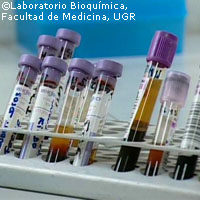Commission publishes Biotech Strategy review
Promoting research and fostering knowledge transfer are at the heart of the European Commission's mid-term review of the Strategy on Life Sciences and Biotechnology. The Life Sciences and Biotechnology Strategy was published in 2002, with the aim of ensuring that Europe's biotechnology sector is in a position to contribute to the knowledge-based society. The review reflects on progress made so far and refocuses the action plan on five priority themes: research, innovation, ethical issues, agriculture and the implementation of the strategy. 'Life sciences and biotechnologies are playing a vital role for the competitiveness of our industry but I see it also playing an important role in facing challenges such as the perils of oil dependence, global warming, food security and population health,' commented EU Science and Research Commissioner Janez Potocnik. 'The FP7 [Seventh Framework Programme] has been designed to address these challenges and to support the development of a European knowledge-based bio-economy.' On research, the revised action plan recognises the importance of the EU's Seventh Framework Programme, but highlights the need to mobilise research funds for biotechnology from other sources, such as public bodies and the private sector. Regarding innovation and knowledge transfer, the document notes that: 'Europe's dedicated biotech companies are mostly SMEs with limited resources whose growth and economic sustainability are held back by three main constraints: Europe's fragmented patent system, the insufficient supply of risk capital and shortcomings in the cooperation between science and business.' With this in mind, the Commission pledges to develop best practices in the responsible licensing of genetic inventions, and encourages Member States to consider setting up specific rules or incentives for young, innovative companies. These companies will also benefit from the Commission's wider work on innovation, which seeks, among other things, to promote links between research and industry and resolve the patent issue. The third area slated for action by the Commission involves encouraging 'informed societal debates' on the benefits and risks of biotechnologies. According to a recent Eurobarometer poll, most Europeans are optimistic about biotechnology in general, believing that technologies such as gene therapy, biofuels or bioplastics have the potential to improve their lives. However, almost 60% are opposed to genetically modified foods. In its action plan, the Commission proposes the establishment of an institutionalised interface where stakeholders will be able to debate the pros and cons of biotechnology. 'There is a clear prerequisite for actions aiming at associating the public and stakeholders as closely as possible to the decision making process, taking into account the benefits and risks of life sciences and biotechnology, on the basis of harmonised data and statistics, as well as ethical considerations,' the document states. The fourth point on the action plan concerns the use of biotechnology in agriculture, which the Commission identifies as having a 'huge potential for development, in particular in the replacement of chemical processes and fossil fuels.' Finally, the fifth point of the refocused action plan is devoted to improving the implementation of the legislation and its impact on competitiveness. In particular the document emphasises the importance of monitoring the implementation of the strategy at the Member State level and improving policy coordination, particularly on newly emerging issues. The biotechnology industry has welcomed the review, with bioindustry association EuropaBio describing the refocused actions as 'an important step towards building the bio-economy'. However, the group regrets that many Member States have failed to implement the strategy fully. 'Member States must take their responsibilities to implement the biotech strategy seriously otherwise today's Mid-Term Review of the European strategy will not generate the bio-economy and meanwhile US, China and the rest of the world will run ahead of Europe,' warned EuropaBio Secretary General Johan Vanhemelrijck. The European Research Ministers will be asked to endorse the review document in the next few months. The strategy itself is due to run until 2010.



